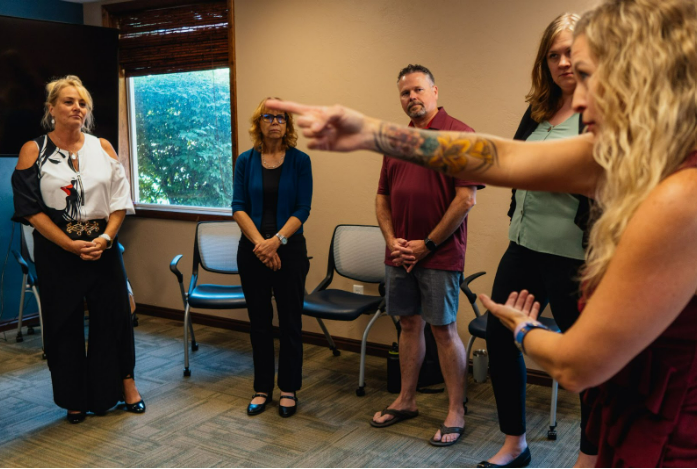The principles of improv extend far beyond the stage. At its core, improv encourages participants to suspend judgment — a skill crucial not only for comedic timing but also for fostering personal growth and development.
Embracing the Unknown
One of the fundamental rules of improv is “yes, and…,” which involves accepting and building upon ideas presented by others.It forms the foundation upon which meaningful trust and connections are built. Trust is essential in both personal and professional relationships. This principle requires participants to let go of preconceived judgments and embrace the unknown.
In personal growth, this translates to openness to new experiences and ideas without immediate criticism.
Creating a Supportive Environment
Improv inspires an environment where participants support each other’s contributions.
By suspending judgment, individuals create a space where creativity flourishes, and everyone feels valued. This supportive atmosphere fosters a sense of belonging and encourages individuals to take creative risks without fear of criticism.
Cultivating Resilience and Adaptability
In the unpredictable world of improv, performers must adapt quickly to unexpected twists and turns. This cultivates resilience — the ability to bounce back from challenges — and adaptability, essential skills in personal and professional life.
By learning to suspend judgment, individuals become more flexible in their thinking and better equipped to navigate change.
Overcoming Fear of Failure
Fear of judgment often inhibits personal growth and creativity. In improv, mistakes are inevitable, yet they are embraced as opportunities for learning and growth.
By suspending judgment of oneself and others, individuals can overcome the fear of failure and approach challenges with a positive mindset.




